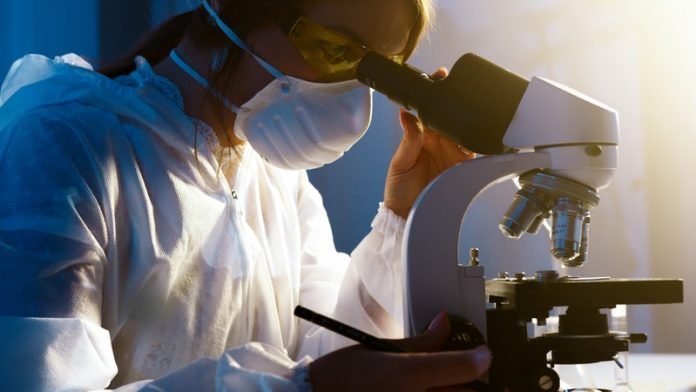
In a new study from the Francis Crick Institute, researchers screened thousands of drug and chemical molecules and identified a range of new antivirals that could help treat COVID-19 or in preparation for future coronavirus outbreaks.
While COVID-19 vaccines are being rolled out, there are still few drug options that can be used to treat patients with the virus, to reduce symptoms and speed up recovery time.
These treatments are especially important for groups where the vaccines are less effective, such as some patients with blood cancers.
In a series of seven papers, the scientists identified 15 molecules that inhibit the growth of SARS-CoV-2 by blocking different enzymes involved in its replication.
The researchers developed and ran tests for around 5,000 molecules to see if any of these effectively blocked the functioning of any of seven SARS-CoV-2 enzymes.
They then validated and tested the potential inhibitors against SARS-CoV-2 in the lab, to determine if they effectively slowed viral growth. The team found at least one inhibitor for all seven enzymes.
Three of the molecules identified are existing drugs, used to treat other diseases.
Lomeguatrib is used in melanoma and has few side effects, suramin is a treatment for African sleeping sickness and river blindness and trifluperidol is used in cases of mania and schizophrenia.
As there are existing safety data on these drugs, it may be possible to more quickly develop into SARS-CoV-2 antivirals.
The team says they developed a chemical toolbox of information about potential new COVID-19 drugs.
They hope this attracts attention from scientists with the drug development and clinical expertise needed to test these further, and ultimately see if any could become safe and effective treatments for COVID-19 patients.
The 15 molecules were also tested in combination with remdesivir, an antiviral being used to treat patients with COVID-19.
Four of these were found to improve the effectiveness of this antiviral in lab tests.
The scientists now plan to run tests to see if any pairing of the 15 molecules they identified decreases the virus’ growth more than if they are used alone.
Targeting enzymes involved in virus replication could also help prepare for future viral pandemics.
If you care about COVID, please read studies about people with these blood types may have lower risk of severe COVID-19 and findings of people with this health problem three times more likely to die in COVID-19.
For more information about COVID and your health, please see recent studies about this two-drug combo cab treat COVID-19 effectively and results showing that new nasal spray preventing COVID-19 is also effective against common cold, COPD.
The study is published in Biochemical Journal. One author of the study is John Diffley.
Copyright © 2021 Knowridge Science Report. All rights reserved.



